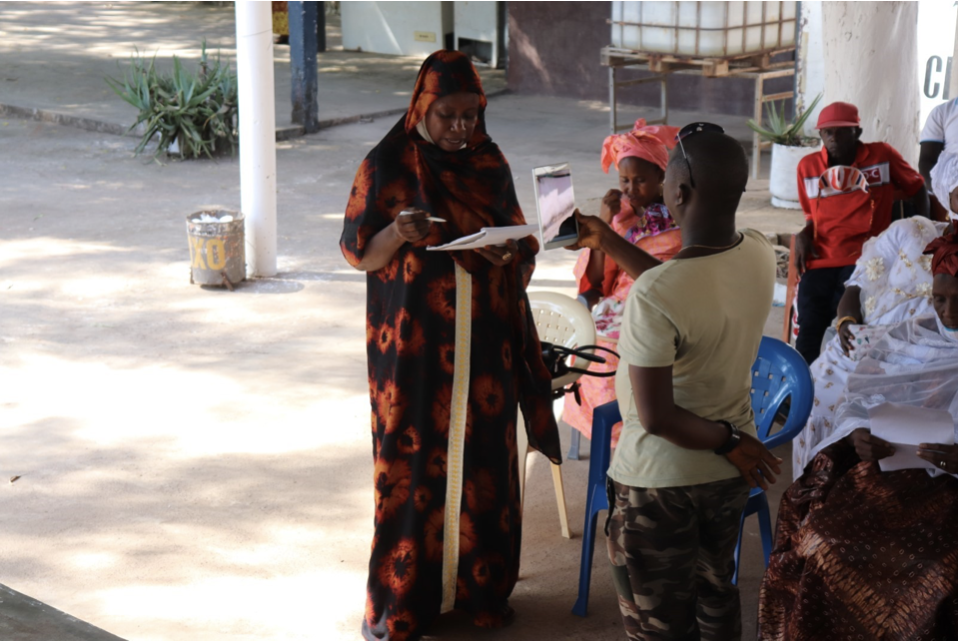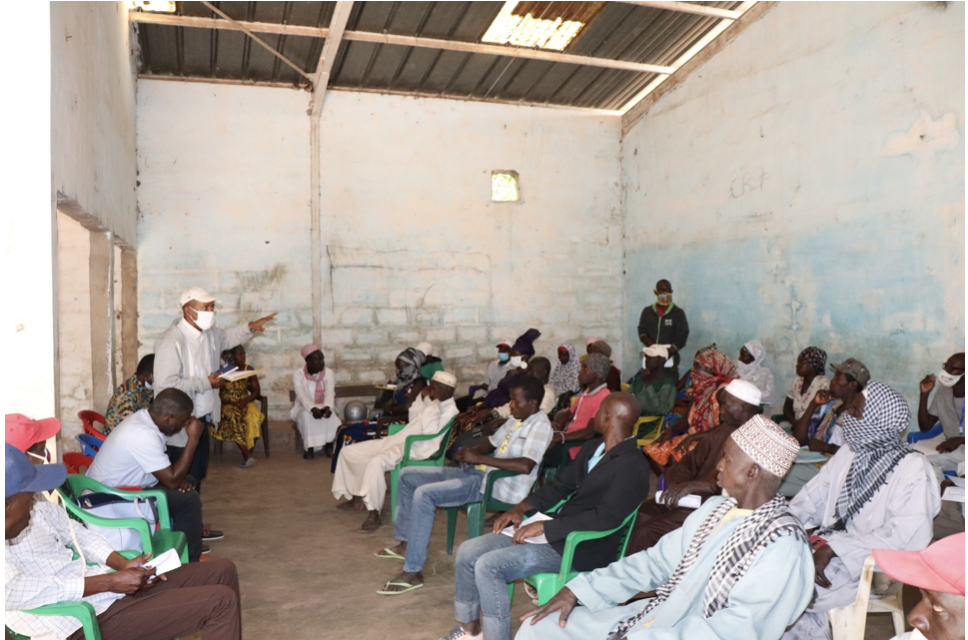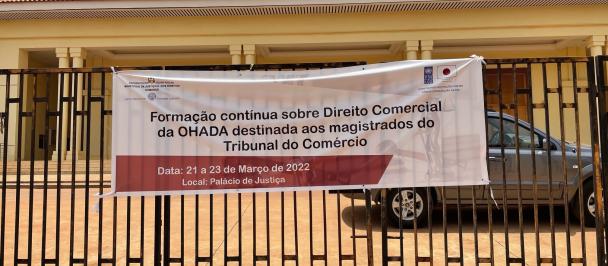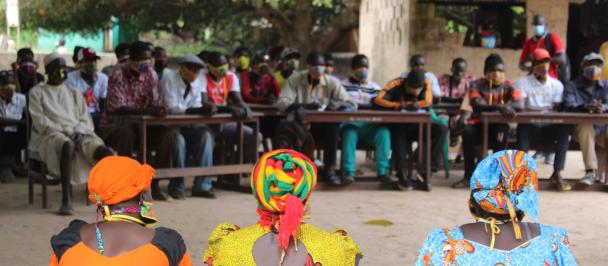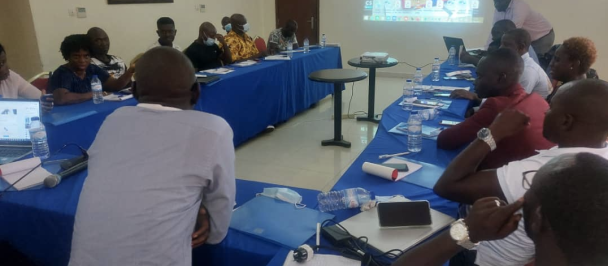Community Resilience Dialogue in Ganadu, BAFATÁ , Photo: UNDP, December 2020
The Government of the United Kingdom, represented by the Home Office, and the United Nations Development Programme in Guinea-Bissau have signed a financing agreement of 285,790 GBP to increase community resilience towards Serious Organised Crime (SOC) in borderland regions of Guinea-Bissau most at risk from trafficking and other forms of SOC. The initiative will be implemented in collaboration with the Global Initiative Against Transnational Organized Crime, which has been partnering with the UNDP Guinea-Bissau for the joint implementation of the “Building a Civil-Society Observatory of the Illicit Economy” project since 2020.
One of the principal challenges of responding to organized crime has been the capacity of criminal groups to target and capture those very agents of the state that are earmarked to prevent and prosecute their operations. Last year’s Global Initiative report highlighted issues, including corruption and the vulnerability of the sub-region for cocaine trafficking, and through a small pilot element, the role civil society could play to increase transparency and accountability.
Community Resilience Dialogue in GABU , Photo: UNDP, 2020
The support of the Government of the United Kingdom will allow the project to expand its interventions in the borderlands, following the results of a study carried out by the UNDP Guinea-Bissau with the support of the UNDP Africa Borderlands Center on the impact of the illicit economy in the borderlands with Senegal and Guinea Conakry. The objective is for civil society to be strengthened and made more resilient to challenge corruption and other enablers discovered in vulnerable borderlands and transport hubs.
The partnership focuses namely on disrupting trafficking flows by empowering communities to operate as early warning cells and enhancing sub-regional coordination between civil society networks and state representatives, and limiting the harms of illicit economies by working with vulnerable populations to enhance awareness and mitigate the risks of increasing drug use. Targeted interventions will be carried out to divert communities from becoming involved in illicit markets, while also accompanying media in the sub-region to cover cocaine trafficking in a more transparent and freer way.
In a nutshell, the project seeks to test out the hypothesis that civil society can provide a role in tackling Serious Organised Crime and contribute to fill the gap of a weak institutional setting.

 Locations
Locations